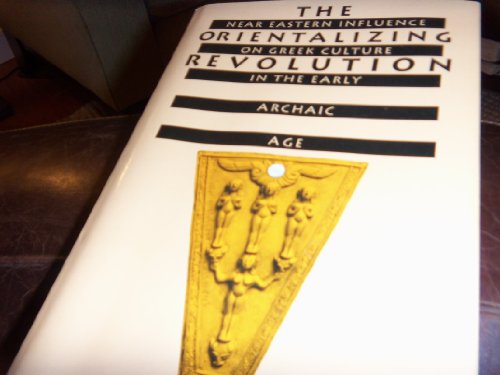Revealing Antiquity
1 primary work
Book 5
The rich and splendid culture of the ancient Greeks has often been described as emerging like a miracle from a genius of its own, owing practically nothing to its neighbours. Walter Burkert offers an argument against that distorted view, pointing toward a balanced picture of the archaic period "in which, under the influence of the Semitic East, Greek culture began its unique flowering, soon to assume cultural hegemony, in the Mediterranean". Burkert focuses on the "orientalizing" century 750-650 B.C., the period of Assyrian conquest, Phoenician commerce, and Greek exploration of both East and West, when not only eastern skills and images but also the Semitic art of writing was transmitted to Greece. He tracks the migrant craftsmen who brought the Greeks new techniques and designs, the wandering seers and healers teaching magic and medicine, and the important Greek borrowings from Near Eastern poetry and myth. Drawing widey on archaeological, textual and historical evidence, he demonstrates that eastern models significantly affected Greek literature and religion in the Homeric age.
